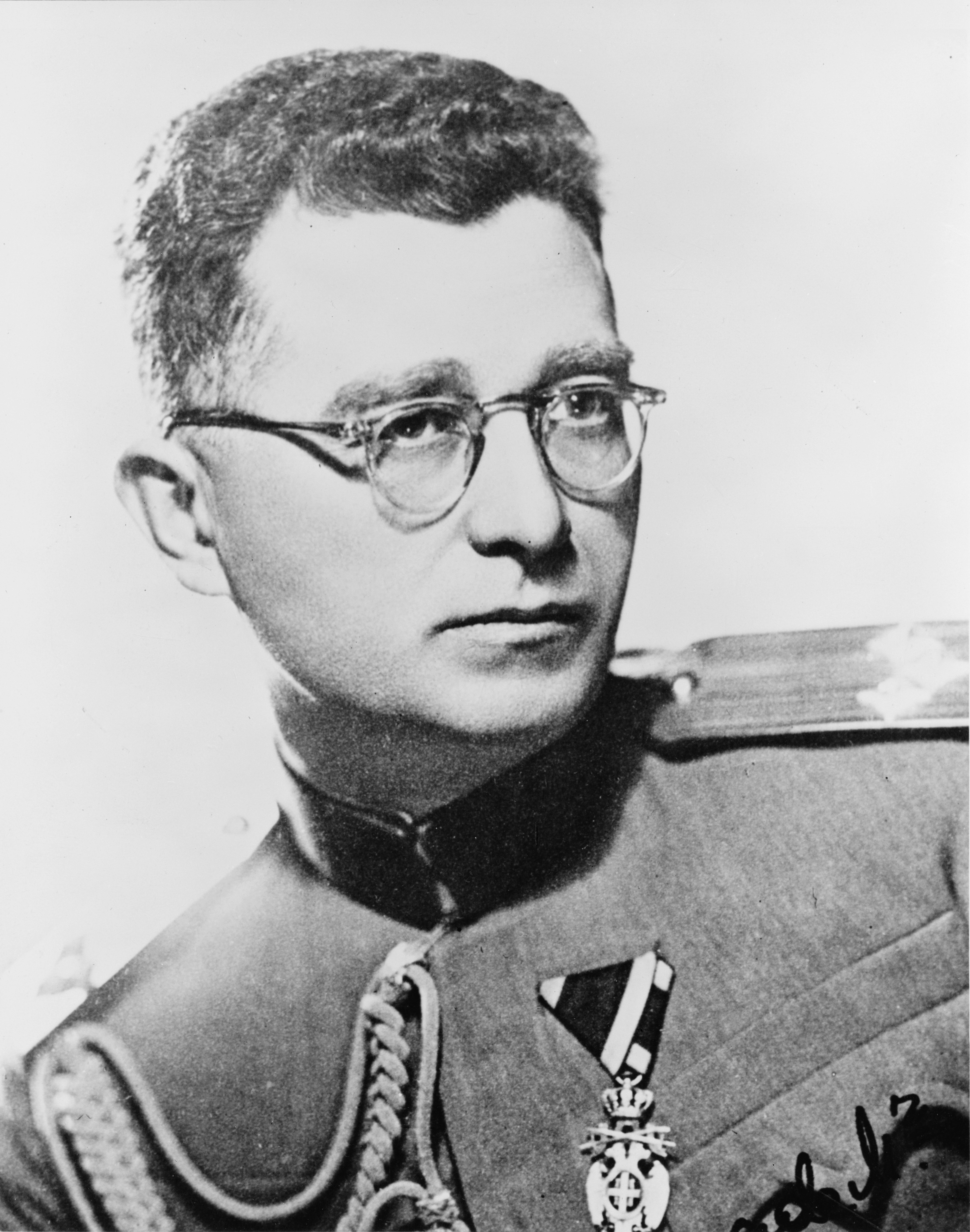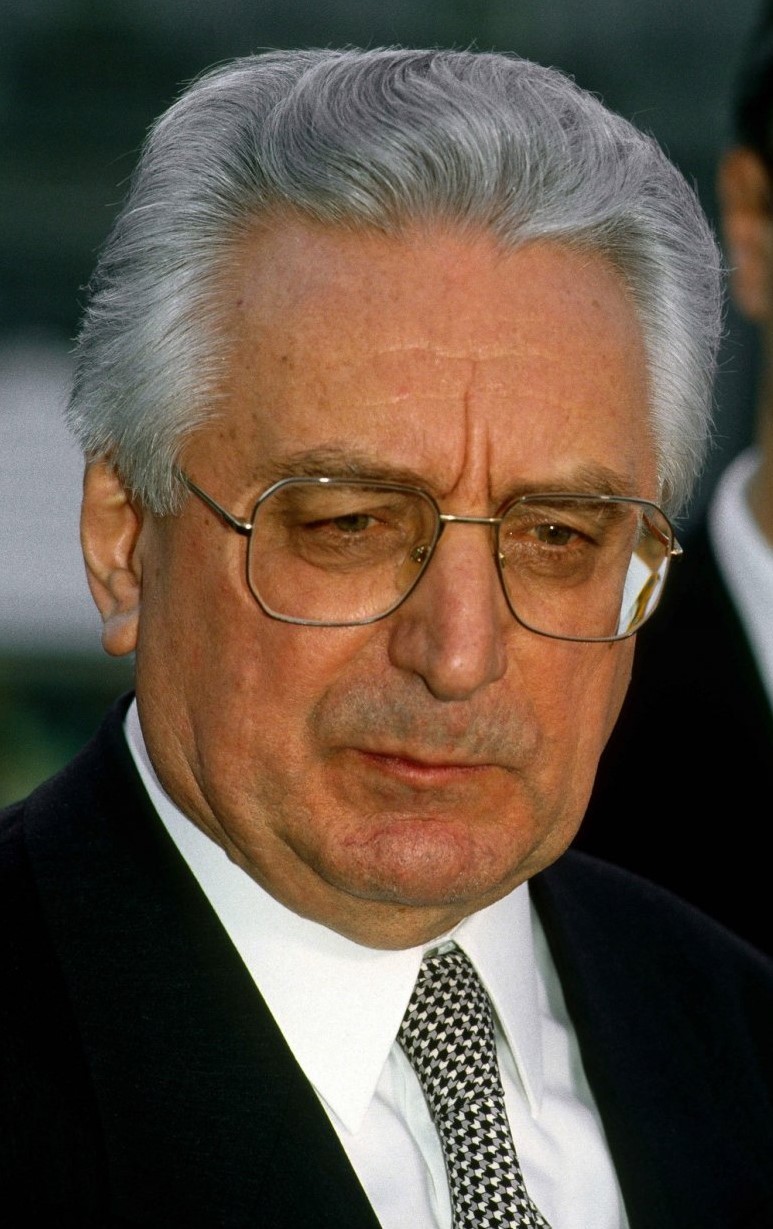|
Bogoljub Kočović
Bogoljub Kočović (1920 – February 2013) was a Serbian jurist and statistician. He undertook the first objective examination of the number of people killed during World War Two in Yugoslavia and published his findings in the 1985 book ''Žrtve drugog svetskog rata u Jugoslaviji'' (Victims of the Second World War in Yugoslavia). Life and career Born in Sarajevo; his father was a Serb, and his mother French. He received a Doctor of Law from the Sorbonne in 1949 and later after working in the U.S., obtained a MA in economics at Roosevelt University in Chicago in 1956. He was a research assistant in the French National Center of Scientific Research ( CNRS) from 1947–52. In 1963, he returned to Paris, working as the administrative and financial director for two US firms until his retirement in 1984. Kočović was one of the co-founders of the ''Oslobođenje'' union in Geneva and Paris, a contributor and an editor of ''Naša reč''. He, along with Dr Dragan Pavloviċ, founded t ... [...More Info...] [...Related Items...] OR: [Wikipedia] [Google] [Baidu] |
Sarajevo
Sarajevo ( ), ; ''see Names of European cities in different languages (Q–T)#S, names in other languages'' is the Capital city, capital and List of cities in Bosnia and Herzegovina, largest city of Bosnia and Herzegovina, with a population of 275,524 in its administrative limits. The Sarajevo metropolitan area with its surrounding municipalities has a population of 592,714 people. Located within the greater Sarajevo valley of Bosnia (region), Bosnia, it is surrounded by the Dinaric Alps and situated along the Miljacka River in the heart of the Balkans, a region of Southeastern Europe. Sarajevo is the political, financial, social, and cultural centre of Bosnia and Herzegovina and a prominent centre of culture in the Balkans. It exerts region-wide influence in entertainment, media, fashion, and the arts. Due to its long history of religious and cultural diversity, Sarajevo is sometimes called the "Jerusalem of Europe" or "Jerusalem of the Balkans". It is one of a few major Europea ... [...More Info...] [...Related Items...] OR: [Wikipedia] [Google] [Baidu] |
NIN (magazine)
''NIN'' ( sr-cyr, НИН) is a weekly news magazine published in Belgrade, Serbia. Its name is an acronym for ''Nedeljne informativne novine'' (Недељне информативне новине) which roughly translates into ''Weekly Informational Newspaper''. Though a current events magazine in its essence, ''NIN'' also earned an esteemed reputation due to a long tradition of opening its pages to the best and the brightest within Serbian, and previously Yugoslav society, whether in arts, sciences, or even sports. This reputation has recently somewhat been tarnished as the magazine was forced into commercial competition with numerous political periodicals that sprung up in Serbia after the dissolution of Yugoslavia. , the magazine had 35 employees. In July 2008, the magazine celebrated the release of its, 3000th issue. On March 13, 2009, it was announced that a majority stake in the magazine was bought by Swiss media company Ringier AG. NIN was sold to Jelena Drakulić Petro ... [...More Info...] [...Related Items...] OR: [Wikipedia] [Google] [Baidu] |
Serbian Statisticians
Serbian may refer to: * Pertaining to Serbia in Southeast Europe; in particular **Serbs, a South Slavic ethnic group native to the Balkans ** Serbian language ** Serbian culture **Demographics of Serbia, includes other ethnic groups within the country *Pertaining to other places **Serbia (other) **Sorbia (other) *Gabe Serbian (1977–2022), American musician See also * * * Sorbs * Old Serbian (other) Old Serbian may refer to: * someone or something related to the Old Serbia, a historical region * Old Serbian language, a general term for the pre-modern variants of Serbian language, including: ** the Serbian recension of Old Church Slavonic la ... {{Disambiguation Language and nationality disambiguation pages ... [...More Info...] [...Related Items...] OR: [Wikipedia] [Google] [Baidu] |
Bosnia And Herzegovina People Of French Descent
Bosnia and Herzegovina, sometimes known as Bosnia-Herzegovina and informally as Bosnia, is a country in Southeast Europe. Situated on the Balkans, Balkan Peninsula, it borders Serbia to the east, Montenegro to the southeast, and Croatia to the north and southwest, with a coast on the Adriatic Sea in the south. Bosnia (region), Bosnia has a moderate continental climate with hot summers and cold, snowy winters. Its geography is largely mountainous, particularly in the central and eastern regions, which are dominated by the Dinaric Alps. Herzegovina, the smaller, southern region, has a Mediterranean climate and is mostly mountainous. Sarajevo is the capital and the largest city. The area has been inhabited since at least the Upper Paleolithic, with permanent human settlement traced to the Neolithic cultures of Butmir culture, Butmir, Kakanj culture, Kakanj, and Vučedol culture, Vučedol. After the arrival of the first Proto-Indo-Europeans, Indo-Europeans, the area was populated ... [...More Info...] [...Related Items...] OR: [Wikipedia] [Google] [Baidu] |
People From Sarajevo
The term "the people" refers to the public or common mass of people of a polity. As such it is a concept of human rights law, international law as well as constitutional law, particularly used for claims of popular sovereignty. In contrast, a people is any plurality of persons considered as a whole. Used in politics and law, the term "a people" refers to the collective or community of an ethnic group or nation. Concepts Legal Chapter One, Article One of the Charter of the United Nations states that "peoples" have the right to self-determination. Though the mere status as peoples and the right to self-determination, as for example in the case of Indigenous peoples (''peoples'', as in all groups of indigenous people, not merely all indigenous persons as in ''indigenous people''), does not automatically provide for independent sovereignty and therefore secession. Indeed, judge Ivor Jennings identified the inherent problems in the right of "peoples" to self-determination, as i ... [...More Info...] [...Related Items...] OR: [Wikipedia] [Google] [Baidu] |
2013 Deaths
This is a list of lists of deaths of notable people, organized by year. New deaths articles are added to their respective month (e.g., Deaths in ) and then linked below. 2025 2024 2023 2022 2021 2020 2019 2018 2017 2016 2015 2014 2013 2012 2011 2010 2009 2008 2007 2006 2005 2004 2003 2002 2001 2000 1999 1998 1997 1996 1995 1994 1993 1992 1991 1990 1989 1988 1987 1986 Earlier years ''Deaths in years earlier than this can usually be found in the main articles of the years.'' See also * Lists of deaths by day * Deaths by year (category) {{DEFAULTSORT:deaths by year ... [...More Info...] [...Related Items...] OR: [Wikipedia] [Google] [Baidu] |
1920 Births
Events January * January 1 ** Polish–Soviet War: The Russian Red Army increases its troops along the Polish border from 4 divisions to 20. ** Kauniainen in Finland, completely surrounded by the city of Espoo, secedes from Espoo as its own market town. * January 7 – Russian Civil War: The forces of White movement, Russian White Admiral Alexander Kolchak surrender in Krasnoyarsk; the Great Siberian Ice March ensues. * January 10 ** The Treaty of Versailles takes effect, officially ending World War I. ** The League of Nations Covenant enters into force. On January 16, the organization holds its first council meeting, in Paris. * January 11 – The Azerbaijan Democratic Republic is recognised de facto by European powers in Palace of Versailles, Versailles. * January 13 – ''The New York Times'' Robert H. Goddard#Publicity and criticism, ridicules American rocket scientist Robert H. Goddard, which it will rescind following the launch of Apollo 11 in 1969. * Janua ... [...More Info...] [...Related Items...] OR: [Wikipedia] [Google] [Baidu] |
Jozo Tomasevich
Josip "Jozo" Tomasevich (1908October 15, 1994; ) was an American economist and historian whose speciality was the economic and social history of Yugoslavia. Tomasevich was born in the Kingdom of Dalmatia, then part of Austria-Hungary, and after completing high school and attending a commercial academy, he earned a doctorate in economics from the University of Basel in Switzerland. In the mid-1930s, he worked at the National Bank of Yugoslavia in Belgrade and published three well-received books on Yugoslavia's national debt, fiscal policy, and money and credit respectively. In 1938, he moved to the United States as the recipient of a two-year Rockefeller fellowship and conducted research at Harvard University before joining the academic staff of Stanford University. During World War II, Tomasevich worked for the Board of Economic Warfare and the United Nations Relief and Rehabilitation Administration, and post-war he joined the Federal Reserve Bank in San Francisco. In 1948, ... [...More Info...] [...Related Items...] OR: [Wikipedia] [Google] [Baidu] |
Zagreb
Zagreb ( ) is the capital (political), capital and List of cities and towns in Croatia#List of cities and towns, largest city of Croatia. It is in the Northern Croatia, north of the country, along the Sava river, at the southern slopes of the Medvednica mountain. Zagreb stands near the international border between Croatia and Slovenia at an elevation of approximately above mean sea level, above sea level. At the 2021 census, the city itself had a population of 767,131, while the population of Zagreb metropolitan area is 1,086,528. The oldest settlement in the vicinity of the city was the Roman Andautonia, in today's Šćitarjevo. The historical record of the name "Zagreb" dates from 1134, in reference to the foundation of the settlement at Kaptol, Zagreb, Kaptol in 1094. Zagreb became a free royal city in 1242. In 1851, Janko Kamauf became Zagreb's List of mayors of Zagreb, first mayor. Zagreb has special status as a Administrative divisions of Croatia, Croatian administrative ... [...More Info...] [...Related Items...] OR: [Wikipedia] [Google] [Baidu] |
Breakup Of Yugoslavia
After a period of political and economic crisis in the 1980s, the constituent republics of the Socialist Federal Republic of Yugoslavia split apart in the early 1990s. Unresolved issues from the breakup caused a series of inter-ethnic Yugoslav Wars from 1991 to 2001 which primarily Bosnian War, affected Bosnia and Herzegovina, neighbouring parts of Croatian War of Independence, Croatia and, some years later, Kosovo War, Kosovo. Following the Allies of World War II, Allied victory in World War II, Yugoslavia was set up as a federation of six republics, with borders drawn along ethnic and historical lines: Socialist Republic of Bosnia and Herzegovina, Bosnia and Herzegovina, Socialist Republic of Croatia, Croatia, Socialist Republic of Macedonia, Macedonia, Socialist Republic of Montenegro, Montenegro, Socialist Republic of Serbia, Serbia, and Socialist Republic of Slovenia, Slovenia. In addition, two autonomous provinces were established within Serbia: SAP Vojvodina, Vojvodina an ... [...More Info...] [...Related Items...] OR: [Wikipedia] [Google] [Baidu] |
Edvard Kardelj
Edvard Kardelj (; 27 January 1910 – 10 February 1979), also known by the pseudonyms Bevc, Sperans, and Krištof, was a Yugoslav politician and economist. He was one of the leading members of the Communist Party of Slovenia before World War II. During the war, Kardelj was one of the leaders of the Liberation Front of the Slovenian People and a Slovene Partisan. After the war, he was a federal political leader in the Socialist Federal Republic of Yugoslavia. He led the Yugoslav delegation in peace talks with Italy over the border dispute in the Julian March. Kardelj was the main creator of the Yugoslav system of workers' self-management. He was an economist and a full member of both the Slovene Academy of Sciences and Arts and the Serbian Academy of Sciences and Arts. He also played a major role in foreign policy by designing the fundamental ideological basis for the Yugoslav policy of nonalignment in the 1950s and the 1960s. Early years Kardelj was born in Ljubljana. At t ... [...More Info...] [...Related Items...] OR: [Wikipedia] [Google] [Baidu] |




